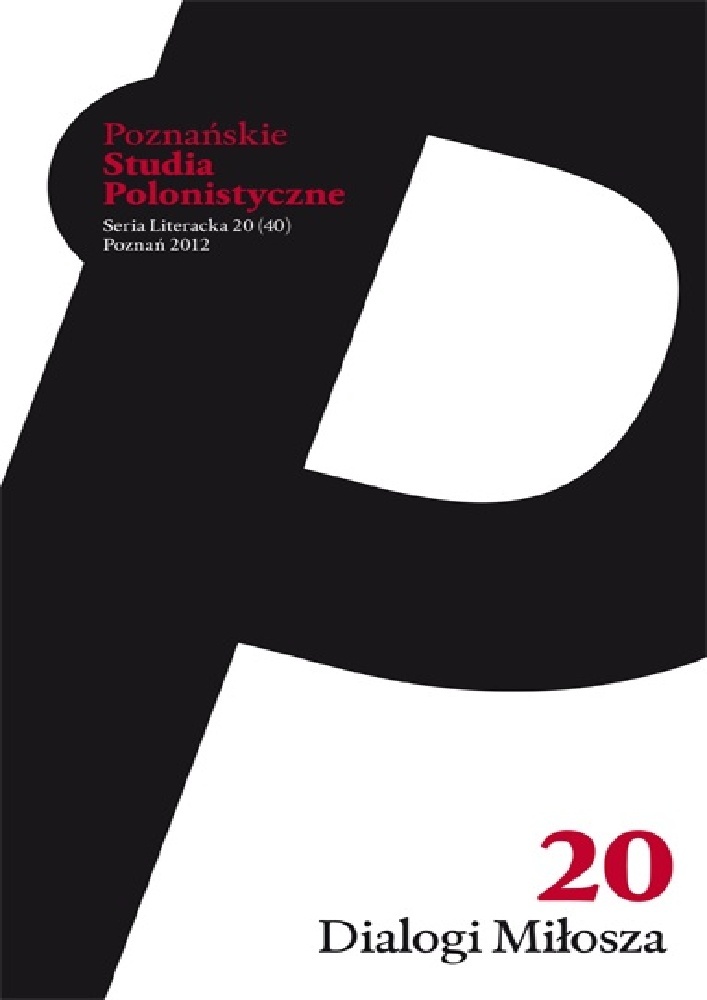Abstract
The article discusses the plausibility of Joanna Zach’s concept described as the “poetic of confession”. “Self discovery” is, for Miłosz, related to Romantic and early-Modernist sources of creative expression, and to poetry as a specific confession of faith. This, in turn, assumes an unending tension between biography, immersed in concrete reality, and its textual representation (the truth of life is confronted with the truth of poetry). What follows is that for Miłosz the key category is experience, suspended between history and the present, and between reality and its textual transformation.References
Banowska L., Miłosz i Mickiewicz. Poezja wobec tradycji, Poznań 2005.
Janion M., Zmierzch paradygmatu, w: eadem, „Czy będziesz wiedział, co przeżyłeś”, Warszawa 1996.
Kiślak E., Walka Jakuba z aniołem. Czesław Miłosz wobec romantyczności, Warszawa 2001.
Stala M., Trzy nieskończoności. O poezji Adama Mickiewicza, Bolesława Leśmiana i Czesława Miłosza, Kraków 2001.
Zach J., Miłosz i poetyka wyznania, Kraków 2002.
License
Authors
Authors of texts accepted for publication in „Poznańskie Studia Polonistyczne. Seria Literacka” are required to complete, sign and return to the editor's office the Agreement for granting a royalty-free license to works with a commitment to grant a CC sub-license.
Under the agreement, the authors of texts published in „Poznańskie Studia Polonistyczne. Seria Literacka” grant the Adam Mickiewicz University in Poznań a non-exclusive, royalty-free license and authorize the use of Attribution-NoDerivatives 4.0 International (CC BY-ND 4.0)Creative Commons sub-license.
The authors retain the right to continue the free disposal of the work.
Users
Interested Internet users are entitled to use works published in „Poznańskie Studia Polonistyczne. Seria Literacka” since 2016, for non-commercial purposes only, under the following conditions:
- attribution - obligation to provide, together with the distributed work, information about the authorship, title, source (link to the original work, DOI) and the license itself.
- no derivatives - the work must be preserved in its original form, without the author's consent it is not possible to distribute the modified work, such as translations, publications, etc.
Copyrights are reserved for all texts published before 2016.
Miscellaneous
Adam Mickiewicz University in Poznań retains the right to magazines as a whole (layout, graphic form, title, cover design, logo etc.).
